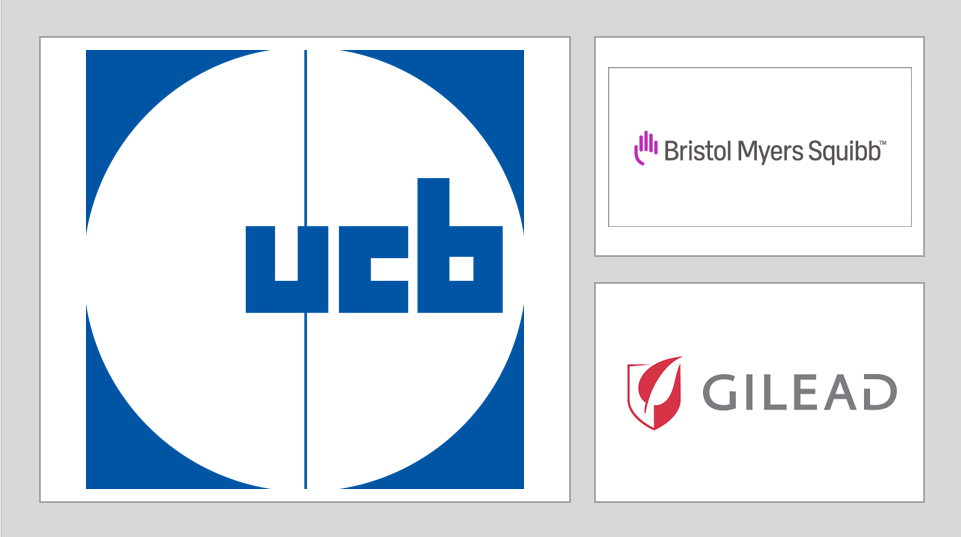News & Trends - Pharmaceuticals
Leaders from UCB, BMS and Gilead call for changes to funding pathways for novel medicines, Inquiry hearing

Pharma News: The House of Representatives Standing Committee on Health, Aged Care and Sport held its second day of the public hearings in Melbourne, on Friday 23 April, as part of the Committee’s ongoing Inquiry into approval processes for new drugs and novel medical technologies in Australia.
Jamie McCoy, General Manager, Gilead Sciences addressed the Committee regarding the funding pathway roadblocks for CAR-T therapy which is delaying access to treatments for Australians living with lymphoma.
“Right now, treatment centres in Melbourne, Sydney and Brisbane have been established and are able to deliver Yescarta (axicabtagene ciloleucel) to patients today. Meanwhile, negotiations with the Commonwealth are yet to be finalised and Australian patients have now been waiting 15 months to receive Yescarta.
“There are no milestones or deadlines post MSAC recommendations, no sense of urgency, nor opportunity for patients or healthcare practitioner to provide input,” said Ms McCoy.
Gilead’s Yescarta has been available in the US and major European markets since 2019. While this innovative therapy has been TGA approved in 2020, it has not been reimbursed yet. Despite MSAC providing a positive recommendation for Commonwealth funding in 2020, not much has progressed with regards to pricing negotiations with states and territories for the in-hospital costs associated with the delivery of cell therapy.
Ms McCoy identified the desperate need for a more suitable framework for the reimbursement pathway of new cell therapies and other innovative treatments.
“An appropriate and fit for purpose Health Technology Assessment (HTA) process and body designed for new technologies and treatment modalities, and a transparent and predictable funding framework including target timelines that includes the responsibilities of both the Commonwealth and the States is required,” she added.
You may also like The reimbursement process is failing us, say patient advocacy groups at Inquiry hearing
Selina Clifford, Head of Neurology and Country Lead, UCB Australia called for immediate changes to the current regulatory and reimbursements pathways to support the evaluation of rare disease medicines.
“The main obstacle for bringing these types of medicines to Australia is the current reimbursement process, without the provision of a dynamic HTA process. While the Pharmaceutical Benefits Advisory Committee processes welcome clinician and patient input to the submissions, the weight given to these important insights is limited in that they are not part of the Pharmaceutical Benefits Advisory Committee (PBAC) decision making process.”
The substantial regulatory costs associated with lengthy approvals of new medicines is discouraging sponsors from seeking reimbursements but rather forcing them to supply drugs to patients under a special access scheme (SAS). This is not a sustainable solution due to the cost to patients, the considerable administrative burden on the healthcare system and the doctors that must continuously apply for access to these medicines.
Expanding health technology assessments, beyond the traditional framework, is necessary for novel therapies in rare diseases where patient numbers are small and the gold standard, large scale clinical trials that the PBAC relies upon, are not applicable.
Neil MacGregor, CEO, Bristol-Myers Squibb (BMS) noted “Australia has been held back from encouraging new investment and clinical trials by the slow and often repetitive processes required by the states and territories for sponsors like BMS to establish a trial and start enrolling patients.
“While the rest of the world is grappling with the pandemic, our trials sector is continuing to operate and we have an opportunity to embed new investment with a harmonised national approach to clinical trials offering innovative treatments to patients and encouraging new skilled jobs in the research sector,” he added.
The transition to one platform for the entry of ethics and clinical governance information could unlock this opportunity ‘in a two-year timeframe.’
As science continues to move at an incredible pace, delivering timely access to novel treatments and medical innovations is essential in ensuring Australia’s world class health system. While the TGA approval processes are meeting most sponsor demands, there are significant roadblocks in the reimbursement pathways which require urgent changes.
News & Trends - Biotechnology

Aussie biotech secures agreement with UQ and USyd to advance cardiovascular diseases research
Biotech News: Australian biotechnology company, Cartherics, developing immune cell therapies for the treatment of cancer, has entered into a Technology […]
MoreNews & Trends - MedTech & Diagnostics

NSW Health Secretary urges more focus on patient experience, drawing from her own heart valve disease journey
In a heart-warming event that united patients, their loved ones, representatives from patient organisations and employees, Edwards Lifesciences hosted its […]
MoreHuman Resources

‘To be an inclusive society, we need an embedded national strategy to combat systemic racism’, says Commissioner Sivaraman
Race Discrimination Commissioner Giridharan Sivaraman has welcomed the release of the Multicultural Framework Review by the Federal Government, calling it […]
MoreNews & Trends - Pharmaceuticals

Shingles vaccine lowers risk of dementia
Pharma News: A recombinant shingles vaccine which was added to Australia’s National Immunisation Program (NIP) in November last year, is […]
More